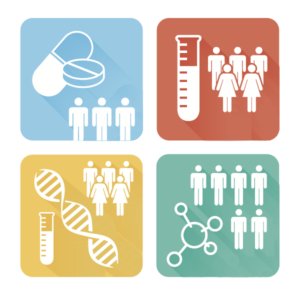Interview preparation for a Bioanalytical Laboratory Position

Finding a job is much like finding a partner. The interview can be a stressful experience and many of us will struggle with presenting our own skills, capabilities, and talents to show us at our best. BioPharma Services Inc. (BPSI) is a full-service Contract Research Organization (CRO). BioPharma Services conducts Phase I, bioequivalence/bioavailability and human abuse liability (HAL) studies for drug development programs for various sponsors in the pharmaceutical industry.
One of the important services offered at BioPharma Services is bioanalysis, where drug concentrations are measured in human biological matrix (plasma, serum, urine) to generate pharmacokinetic profiles as a measurable endpoint of pharmaceutical drug exposure. A career in bioanalysis can be very rewarding, and we hope the few thoughts and comments regarding the interview from the employer perspective might be beneficial for future candidates seeking jobs in the bioanalytical field.
Be professional during the interview
It probably has been said many times, but keep in mind that an interview for a bioanalytical laboratory position is a professional meeting! All rules apply! Arrive for the interview just a few minutes before the designated time. Greeting your interviewers with a smile, a handshake and presenting yourself well is a standard introductory process before initiating the actual interview. Speak with everyone you meet with respect. Communicate effectively, use clear and concise language, and maintain good eye contact. Avoid the use of jargon and acronyms that the interviewer might not be familiar with. First impressions are so important!
Research the company before the interview and be prepared to discuss
The highlights about the company’s profile can be a great starting point for a conversation during an interview. Potential employers will always have a positive impression if the candidate has taken the time to know the company’s business and has some knowledge on recent achievements/transitions within the company. So, before the interview, follow blogs on the company’s website or read newsletters to gather information. During the interview, the employer can expand upon the role you are applying for and how you will be expected to contribute to company business.
Prepare a portfolio of your educational background
Be prepared to speak on your educational background, highest obtained degree, relevant posters or laboratory publications, previous work experience, etc. If you are a fresh graduate, the interviewer will understand that perhaps you lack direct work experience but will be very interested in your previous laboratory experience received during your education, including your involvement in research projects under the guidance of a university professor/scholar. This will demonstrate your level of experience and qualifications to the interviewer, especially for a bioanalytical laboratory position.
Be ready to discuss your technical skills/knowledge relevant to the bioanalytical laboratory position
The employer is interested in your experience and how relevant and transferable your skills are to the position you are applying for. Make sure you have carefully read the job description. Do the research on the job duties listed in the job posting. It always provides an insight as to what technical questions the employer may ask.
During the interview emphasize your strongest relevant analytical skills (pipetting, using balances, common lab equipment, preparing solutions, handling analytical reference standard materials, operation and troubleshooting of analytical instrumentation (e.g., HPLCs, LC-MS/MS etc.,). Often, the employer might ask more specific questions regarding the types of the common procedures used in bioanalysis.
-
- Familiarize yourself with techniques used to extract the pharmaceutical drug of interest from the biological matrix, such as supported liquid extraction (SLE), solid phase extraction (SPE) or protein precipitation (PPT).
- Do you know what derivatization or hydrolysis is?
- Are you familiar with an internal standard, and what is its purpose in bioanalysis?
- Modern approaches to extractions are often carried out in 96-well format, using high precision micropipettes and multichannel pipettes, or automated liquid handling systems, do you know why that is?
- If you are familiar with, or have experience, with the widely used Watson LIMS or LC-MS/MS Analyst software used in Bioanalytical Laboratories, mention it during the interview.
If you don’t have direct hands-on experience with any, or all these procedures, describing your theoretical knowledge demonstrates that you have taken the time to familiarize yourself with these techniques and shows that you are eager to learn. A demonstration of a basic understanding goes along way, rather than just giving up with “I don’t know” in response to a question.
Be ready to discuss your experience/knowledge of regulatory requirements
The application of bioanalysis to support a drug development program is a heavily regulated industry, and the standards of a bioanalytical laboratory position are essential to maintain. It is important to mention that you are acquainted with the meaning of terms like Standards Operation Procedures (SOPs), Good Laboratory Practice (GLP), Good Clinical Practices (GCP), Good Documentation Practice (GDP) in a bioanalytical laboratory.
Look online for resources regarding regulatory agencies such as the FDA, EMA, ANVISA and ICH M10 Harmonised Guideline for Bioanalytical Method Validation to have an understanding of the regulations and requirements in the bioanalytical laboratory industry. The employer wants to see that you understand the basic concepts of the regulations and requirements that you will be working with in a bioanalytical laboratory position. Don’t forget the importance of documentation in the bioanalytical laboratory, where the golden rule is “If it’s not documented, it didn’t happen”.
Regulations also require that every bioanalytical method be validated before its application in study sample analysis in a bioanalytical laboratory. The purpose of method validation in a bioanalytical laboratory position is to demonstrate that the method meets the requirements of its intended use, i.e., the quantitation of a given pharmaceutical drug in a biological matrix.
Try to understand common validation requirements such as selectivity/specificity, accuracy & precision, linearity, recovery, matrix effect and stability in a bioanalytical laboratory. Be prepared to explain their principles and understand why they are performed during the method validation in a bioanalytical laboratory.
Show your ability to work in a team and independently
Working in a bioanalytical laboratory position requires great accuracy and precision, attention to detail, and exceptional organizational and time management skills. While performing your duties, you will also be expected to follow health and safety precautions, such as wearing personal protective equipment (PPE). Your organizational skills will benefit in meeting project timelines. Find some examples from your experience that demonstrate these skills.
In addition, collaboration with team members is essential in performing your assigned duties. Often, you will be required to share the same workspace and equipment with your work colleagues respectfully. Participation in challenging projects, while being coached by senior colleagues, is also an excellent opportunity for sharing ideas and personal professional development. Talk about your teamwork experience, including any experience from school labs or scientific competitions. Remember, the success in the bioanalytical field requires a team effort!
Keeping up with novel techniques
Working in a bioanalytical laboratory position is a constantly evolving field where new drugs are evaluated with their own unique challenges. Scientists continuously develop new methods and improve existing procedures, and as new technologies become available in areas such as extraction, chromatography, and MS/MS detection, they are incorporated into laboratory procedures and validated.
In order to succeed in this field, it is essential to have an open attitude towards continuous learning, and be proactive in reading articles and attending seminars to stay up-to-date with the latest advancements. The job requires constant acquisition of new skills, and being passionate and determined will allow you to overcome any obstacles faced along your scientific journey.
Five-year prospective plan
In the bioanalytical laboratory position, a five-year prospective plan is crucial for your professional growth and success. It shows the employer your passion and commitment to the field, and your willingness to continuously learn and adapt to new technologies and methodologies.
Demonstrating a clear direction in your career, such as progressive growth, taking on additional responsibilities and being part of the company’s success, is highly valued by employers. Additionally, the trend of taking on dual roles within companies demonstrates flexibility and offers opportunities for professional development and better integration within the bioanalytical laboratory.
Be prepared to ask questions
At the end of the interview process, come prepared with a list of questions to ask the interviewer. This will demonstrate your interest in the company, its culture, and the specific responsibilities of the position. Examples of questions you might want to ask :
“What can I expect in the 1st month after joining the company”.
“What is the daily routine when working in the lab?”
“I am interested in the seeing what the work environment of the laboratory looks like; would it be possible to have a quick tour?”
Decisions to consider
After the interview process, a brief and polite thank you note (e.g., follow-up email or phone call) demonstrates not only courtesy, but your keen interest in the position. The decision-making process may take some time to choose just right candidate. There may be sorrow when the desired employer does not return your call, but consider the whole process as a learning experience that provides you with knowledge and insight for the next opportunity.
Finally, be patient! If you haven’t been selected this time, keep searching, the next opportunity might be just around the corner! If you are the right candidate for the position, your exciting journey begins in regulated bioanalysis, with great opportunities for learning, teamwork and career growth.
Conclusion
The interview preparation is key to landing a job in the bioanalytical field. It’s important to present yourself as a professional, knowledgeable, and enthusiastic candidate during the interview. Before the interview, take the time to research the company and understand their business, as well as familiarize yourself with the position you are applying for. During the interview, be prepared to discuss your education and technical skills, as well as your knowledge of regulatory requirements in the industry.
Additionally, be ready to highlight your previous laboratory experience and show that you are eager to learn and grow in the field. By following these tips and showing that you have taken the time to prepare, you will increase your chances of impressing the interviewer and landing the job. Good luck!
Looking for Open Positions at BioPharma Services? Click Here.
Find out why BioPharma might be the right partner for you! Learn more about BioPharma Services and the wide array of bioanalytical services we provide.
BioPharma Services, Inc., a Think Research Corporation and clinical trial services company, is a full-service Contract Clinical Research Organization (CRO) based in Toronto, Canada, specializing in Phase 1 clinical trials 1/2a and Bioequivalence clinical trials for international pharmaceutical companies worldwide. BioPharma has clinical facilities both in the USA and Canada with access to healthy volunteers and special populations.



